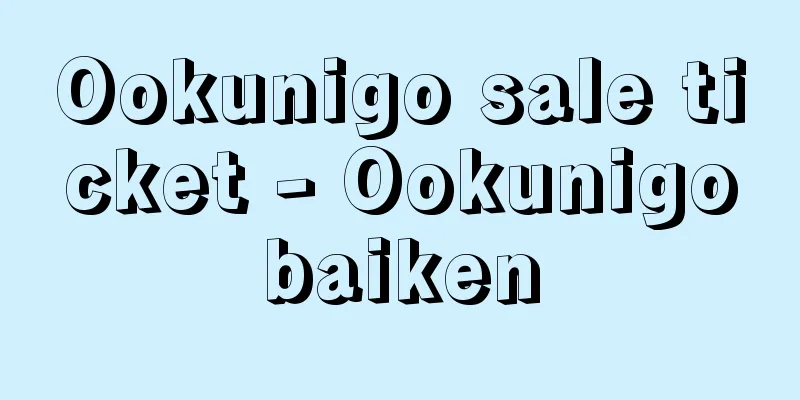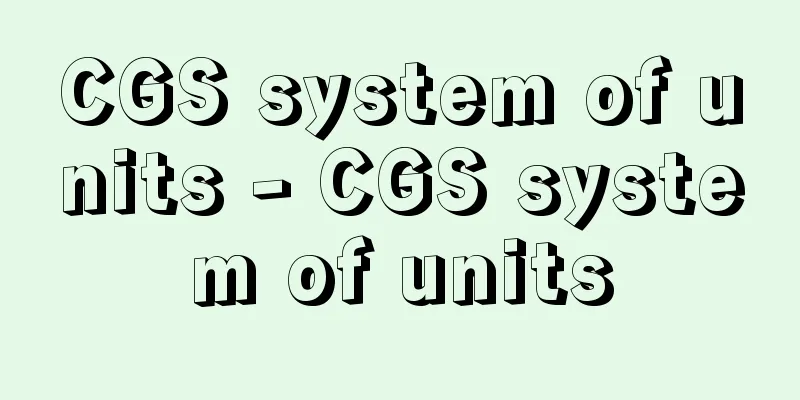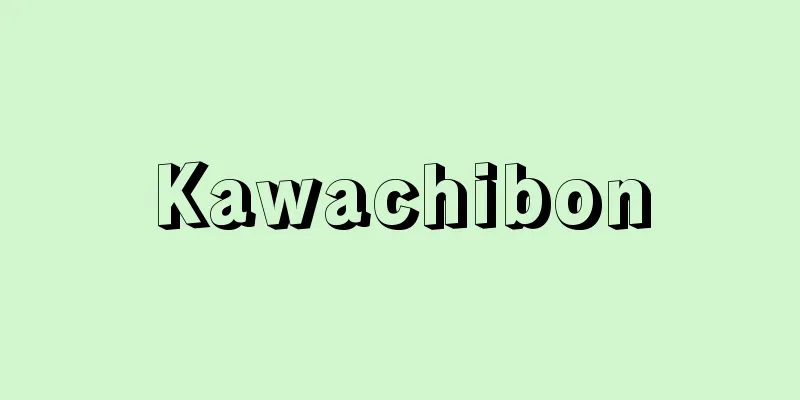Ookunigo sale ticket - Ookunigobaiken

|
...It mainly consists of rice fields around Okuni-go that were purchased by the monk Anpo and others around the 9th century. A portion of the sales ticket from this purchase has been preserved and is called the Okuni-go sales ticket. In 876 (Jogan 18), it consisted of 12 cho of rice paddies. *Some of the terminology used in reference to "Okokugo ticket sales" is listed below. Source | Heibonsha World Encyclopedia 2nd Edition | Information |
|
…主として9世紀ごろ僧安宝らが買得した大国郷周辺の田地よりなる。この買得の際の売券の一部が伝存し,大国郷売券とよばれている。876年(貞観18)には水田12町からなっていた。… ※「大国郷売券」について言及している用語解説の一部を掲載しています。 出典|株式会社平凡社世界大百科事典 第2版について | 情報 |
<<: Ookunitama Okami - Ookunitama Okami
>>: Largemouthed carp - Largemouthed carp
Recommend
Full name (English)
...It can also be called "family name,"...
Amino Acid Preparations - Amino Amino
...A general term for medicines taken to make up ...
Song Dynasty Art (English: Song Dynasty Art)
The Song dynasty (960-1279) is divided into the No...
Weaver
...However, although Lubitsch was the pioneer, th...
Āqā Muḥammad Khan (English spelling)
1742‐97 Founder of the Qajar dynasty. In 1758, aft...
Yuwakai (English: Fellowship of Reconciliation)
FOR is an international Christian peace organizati...
Magnetospheric plasma waves
In the Earth's magnetosphere, which is filled ...
Gunnera manicata (English spelling) Gunneramanicata
… [Mitsuru Hotta]... *Some of the terminology tha...
Kyosuke Kindaichi
Linguist. Founder of Ainu literature research and...
Sebaceous gland - sebaceous gland
Also known as sebaceous glands or hair follicle gl...
Kiheita Shindo
1851 * -1925 A nationalist from the Meiji to Tais...
Wall carpenter - KABEDAIKU
...A craftsman who paints earthen walls, plaster ...
Arctic art (English: Arctic art)
A general term for Mesolithic rock paintings found...
Javanese - Jawago
It is a member of the Indonesian branch of the Ma...
Series - Sosho
A collection of works related to a certain field ...









